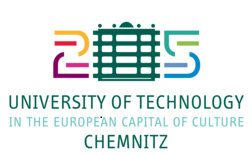The Relationship between Grammar and Vocabulary Levels and Their Writing Skills of Those Who Learn Turkish as a Foreign Language
DOI:
https://doi.org/10.71514/jssal/2021.8Keywords:
Grammar, vocabulary, writing skill, teaching TurkishAbstract
In this study, it is aimed to examine the predictive effect of grammar and vocabulary variables on writing skills of those who learn Turkish as a foreign language and to determine the significance of the variables that affect the writing skills. The study was conducted according to the relational scanning model, one of the quantitative research models. The data of the study were obtained from a total of 100 students with B1 and B2 language levels in Turkish Teaching Centers in the spring semester of the 2019-2020 academic year. In the analysis of the data obtained, descriptive statistics such as mean, t-test and one-way analysis of variance (ANOVA) and regression and correlation analysis from hypothesis tests were used. The data were analyzed using SPPS 21.0 data analysis program. As a result of the study, it was observed that the students obtained a result close to the middle level in the grammar test, grammar and writing skills did not differ according to gender, but the probability value calculated for "Vocabulary" changed in favor of men. It has been seen that students at B2 language level get higher scores than students at B1 language level, level of knowledge of the language, vocabulary and writing skills levels of older age groups that favor change and increasing life expectancy in Turkey in grammar, vocabulary and writing skills has been shown to increase. It has been observed that language and vocabulary have a positive and significant effect on writing skill, and there is a positive, significant and high relationship between grammar and vocabulary.
Downloads
References
Asl, E. H. (2015). Comparative Study of Grammar Translation Method (GTM) and Communicative Language Teaching (CLT) in Language Teaching Methodology. International Journey of Science and Research Methodology, 17-25.
Aydın E, Ciğerci F.(2020). Yabancılara Türkçe öğretiminde dijital hikâye anlatımının yazma kaygısına etkisi. Journal of History School
Başkan, A. (2018). Kelime ve dil bilgisi düzeyinin yedinci sınıf
öğrencilerinde yazma becerisi ile ilişkisi. Yayımlanmamış Doktora Tezi, İnönü Üniversitesi Eğitim Bilimleri Enstitüsü, Malatya.
Boylu, E. (2020). Türkçenin yabancı dil olarak öğretiminde ölçme ve değerlendirme. Karatay, H. (Editör). Türkçenin yabancı dil olarak öğretimi el kitabı (s. 565). Ankara: Pegem Akademi.
Büyüköztürk, Ş., Kılıç Çakmak, E., Akgün, Ö.E., Karadeniz, Ş. ve Demirel, F. (2014). Bilimsel araştırma yöntemleri (17. Baskı). Ankara: Pegem Yayınları.
Costa, L.A. ve Lowery, L.F. (1989). TechniquesforTeachingThinking. USA: Midwest Publications, Alexandria.
Danishauskas, G. (2017). Language As A Tool Of Communıcatıon. Vilnius: Mykolas Romeris University.
Deniz, E. (2017). Yedinci sınıf öğrencilerinin dil bilgisi, kelime bilgisi
ve okuduğunu anlama düzeyleri ile yazma becerileri arasındaki ilişki. Yayımlanmamış Doktora Tezi, İnönü Üniversitesi Eğitim Bilimleri Enstitüsü, Malatya.
Fidan, D. (2016). Türkçenin Yabancı Dil Olarak Öğretimi Ders Kitaplarındaki Dilbilgisi Konuları Ve Öğretmenöğrenici Görüşleri. International Periodical for the Languages, Literature and History of Turkish or Turkic , 257-276.
Güler, N. (2015). Eğitimde ölçme ve değerlendirme. Ankara: Pegem Akademi Yayıncılık.
Hajana, O. (2006). TheRelatıonshıpBetweenGrammatıcalCompetenceand
WrıtıngQualıty, masterthesis, Unıversıty Of Khartoum.
Karasar, N. (2012). Bilimsel Araştırma Yöntemi. Ankara: Bilim Kitap Kırtasiye Yayınevi.
Köksal, Y., & Sarıçoban, A. (2016). Yabancı dil olarak Türkçe öğretiminde b2 (sınırlı bağımsız kullanıcısı) yaratıcı yazma becerilerine yönelik bir izlence önerisi. Uluslararası Türkçenin Yabancı Dil Olarak Öğretimi Kongresi. Almanya: Uluslararası Türkçenin Yabancı Dil Olarak Öğretimi Kongresi.
Memiş, R. M., & Erdem, M. D. (2013). Yabancı dil öğretiminde kullanılan yöntemler, kullanım özellikleri ve eleştiriler. Turkish Studies - International Periodical For The Languages, Literature and History of Turkish or Turkic, 297-318.
Kalaycı Ş. (2006). SPSS uygulamalı çok değişkenli istatistik teknikleri, Asil Yayınları, Ankara.
Klodiana, L. (2012). Teaching Vocabulary using Grammar Translation Method and Communicative Language Teaching. LCPJ Publishing.
Tekbıyık, A. (2014). İlişkisel araştırma yöntemi. M. Metin (Edt.) Kuramdan uygulamaya eğitimde bilimsel araştırma yöntemleri. Ankara: Pegem Yayıncılık. (1. Baskı).
Türkben T. (2019). Yaratıcı yazma uygulamalarının yabancı dil olarak Türkçe öğrenen öğrencilerin yazma becerilerine etkisi, EurasianJournal of EducationalResearch 83, 183-208.
Yıldız, N. (2016). Yabancılara Türkçe öğretiminde okuma öğretimi yöntemlerinin okuduğunu anlamaya etkisi.Recep Tayyip Erdoğan Üniversitesi Sosyal Bilimler Dergisi, 2 (3) , 98-112.
Downloads
Published
How to Cite
Issue
Section
License
Copyright (c) 2021 Hasan Aksoy

This work is licensed under a Creative Commons Attribution-NonCommercial 4.0 International License.
The work is made available under the terms of the Public Offer and the Creative Commons Attribution 4.0 International License (CC BY 4.0). This license allows anyone to reproduce, distribute, and adapt the material in any medium or format, including for commercial purposes, provided that proper credit is given to the creator(s) and the original source.












